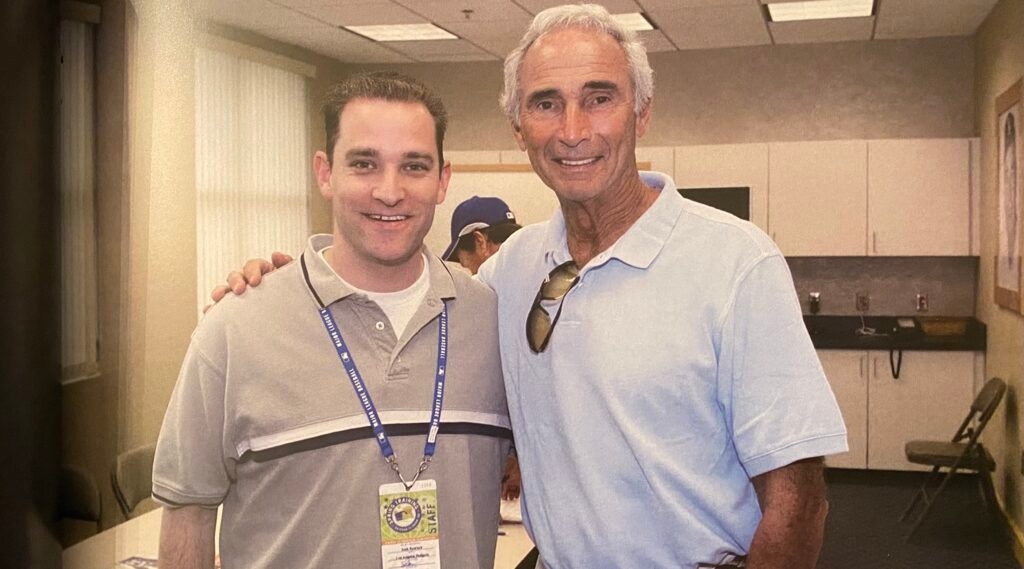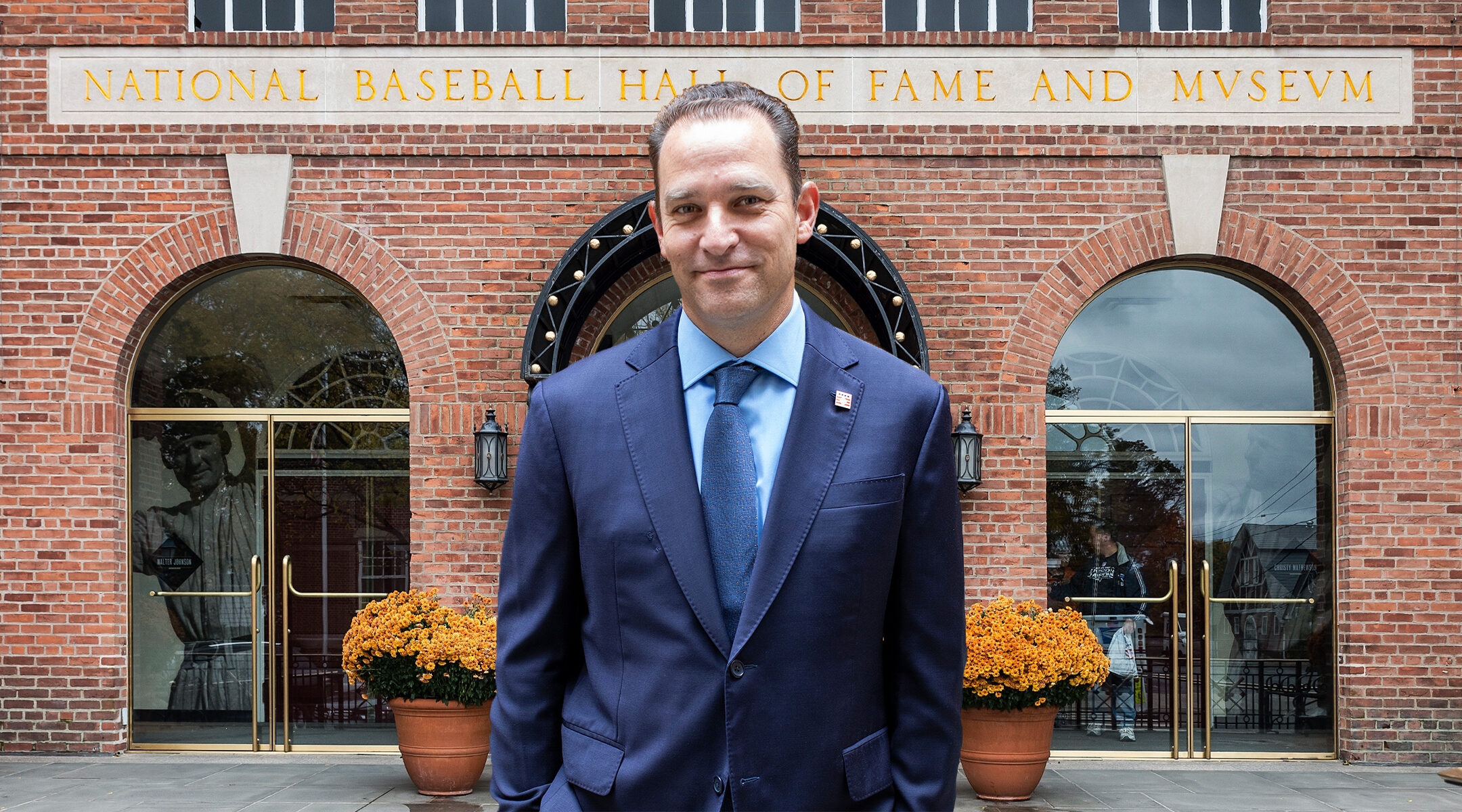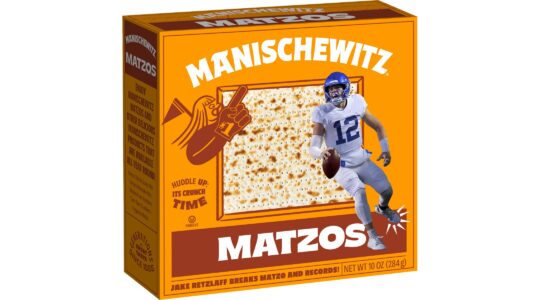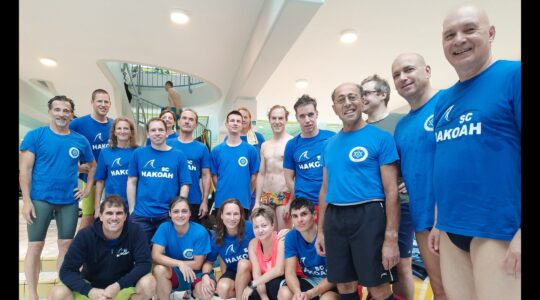(JTA) — Josh Rawitch’s day-to-day is similar to that of any nonprofit executive: He speaks to stakeholders, supervises senior staff and fundraises.
But in his line of work, stakeholders include people like Jewish baseball legend Sandy Koufax.
Since September, Rawitch has served as president of the National Baseball Hall of Fame and Museum in Cooperstown, New York. He is the eighth leader in the institution’s 82-year history.
The Jewish Los Angeles native has worked in baseball for nearly three decades, including long stints with the Los Angeles Dodgers and Arizona Diamondbacks, where he primarily worked in communications roles.
Much like the Hall’s 339 inducted members, Rawitch’s ascension to baseball’s prized historical institution began with a phone call — asking if he would succeed his Jewish predecessor Jeff Idelson.
“Obviously when you get a call like that, you don’t ignore it,” Rawitch told the Jewish Telegraphic Agency. “I had a conversation with my wife, and I said, ‘can you believe the potential opportunity here?’”
Rawitch applied, interviewed and ultimately got “the call” – the big one – from Jane Forbes-Clark, the chairman of the organization’s board of directors and granddaughter of Hall of Fame founder Stephen C. Clark.
As a lifelong baseball fan, Rawitch was speechless.
“It is, at the end of 27 years of working in baseball, a pretty cool way to end up in Cooperstown,” said Rawitch. “Obviously quite different than those who earned their plaques, but the call itself, coming from Jane, probably felt quite similar.”
Now Rawitch gets to see those plaques every day.
“The Plaque Gallery itself is obviously incredibly special because I can’t not look at Jackie Robinson’s plaque whenever I walk in, or Sandy Koufax, who I grew up loving,” he said.
Rawitch tries to spend time in the Hall each day, taking in the exhibits and artifacts. While known for the heroes honored in its ground floor Plaque Gallery, it also includes a three-story museum about the game and its history.
Want more sports stories? Check out our weekly Jewish sports newsletter.
SUBSCRIBE HEREOn Jan. 25, Rawitch will fulfill another dream role for a baseball lifer when he publicly announces the results of the 2022 ballot. The 30-candidate ballot has been considered by the Baseball Writers’ Association of America in a strict and sometimes controversial voting process. Boston Red Sox fans are pulling for David Ortiz, although it’s possible no player will meet the threshold required for induction, as happened last year. Barry Bonds and Roger Clemens are both in their tenth and final year of eligibility, but performance-enhancing drugs scandals have hurt their chances.
Rawitch does not vote — nor could he comment on the candidates or specifics of the ongoing debate over baseball’s history with PEDs. But he will be front and center Tuesday, announcing the results during a live MLB Network television special.
“As a lifelong baseball fan, I’m not sure that there is a cooler honor than doing that, other than maybe sitting on the dais, which I got to do during the last induction ceremony,” said Rawitch. “You look around and your baseball card collection has kind of come to life around you. They’ve earned their way onto the stage, and I don’t know that I’ll ever feel like I did. But it’s a pretty amazing and humbling experience.”
As the public face of the Hall of Fame, he sees the names of those living legends pop up on his phone on a daily basis, he said, including Koufax, whom Rawitch got to know during his time with the Dodgers.

Rawitch, left, and Los Angeles Dodgers legend Sandy Koufax. (Jon SooHoo)
“There are plenty of times in a day where my phone rings and you’re just kind of in awe that you’re getting the chance to talk to somebody who you either grew up watching, or who you just have great respect for,” Rawitch said. “Part of what I’ve learned in working in baseball for a quarter century is that baseball players are just like you and me.… If you show them the respect that they’ve earned, but at the same time just build a personal relationship with them, you start to realize they’re just like anyone else.”
As Rawitch settles into his job, he is driven by one main goal for the Hall of Fame: staying relevant. He said young fans who visit the museum today should have the same experience he had years ago, and his father before him.
“How people consume baseball, and how people consume the history of it, we just have to make sure we’re delivering that in a way that continues to be relevant for future generations,” said Rawitch. “If we can do that, and we can continue to get people to understand just how special this sport is, and how important it is that we preserve it, that’s probably tops on my list of things we can accomplish.”
That is, of course, easier said than done. Baseball’s gradual decline in popularity in recent years is well documented: the juicing scandal tarnished the game’s reputation, three-hour-plus games have been trying fans’ patience, and a current lockout of players means the headlines are focused on strained labor relations, not the upcoming season. One way to buck that last trend, Rawitch said, is to elevate the game’s current stars — including Jewish players like Max Fried and Joc Pederson.
After the 2021 World Series — which featured four Jewish players — Rawitch was tasked with asking Fried and Pederson if the Hall of Fame could display their memorabilia. A recent video on Twitter showed a Hall of Fame employee opening a box containing Pederson’s famous pearl necklace.
“Huge amounts of people were thinking this was really cool, just watching this unboxing video of the pearls arriving in Cooperstown,” said Rawitch. “That can make baseball cool and culturally relevant in a way that before social media, you certainly couldn’t do that.”
Meeting Fried, a fellow Jewish native of L.A., took on extra meaning to Rawitch.
“There have been a number of players over the years, either current or legends, that I have had the chance to meet, and I think you do have that immediate bond of being Jewish,” he said.
In the case of Fried, that was further strengthened by another connection: Fried’s high school coach was Rawitch’s high school teammate.
“Immediately there was an ease as I was talking to [Fried], and part of it was knowing that I knew his coach, but part of it was knowing, okay, here’s two guys who probably grew up relatively similarly in the San Fernando Valley, loving baseball, and one of them’s pitching and one of them is working for the Hall of Fame,” said Rawitch.
Rawitch also appreciates the significance of players like Fried, Pederson, and Houston Astros third baseman Alex Bregman performing on the sport’s biggest stage. He compared it to Team Israel’s magical run in the 2017 World Baseball Classic, which Rawitch witnessed up close as a venue press chief for the tournament.
“I think any time you can see someone who looks like you, feels like you, it definitely gives you a sense that, hey, that’s possible. I can do that,” he said.
Baseball connects with Judaism in another way, said Rawitch: Both foster a deep personal and communal attachment to tradition.
Rawitch’s son is the third generation of Dodger fans in his family to watch games called by legendary broadcaster Vin Scully. To Rawitch, that creates a similar bond as generations of family members who had bar and bat mitzvahs and practiced other Jewish customs.
“You walk into a baseball stadium and you feel the tradition. You walk into a synagogue and you feel the tradition,” he said. “You light candles and you feel the tradition… knowing that there’s generations of people that came before you and did the same thing.”
JTA has documented Jewish history in real-time for over a century. Keep our journalism strong by joining us in supporting independent, award-winning reporting.





